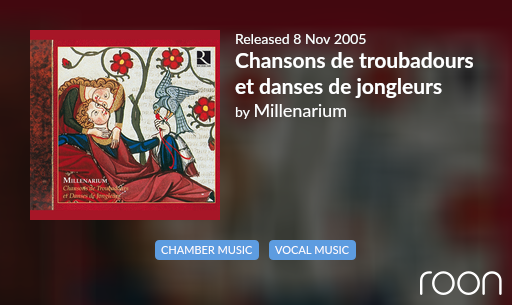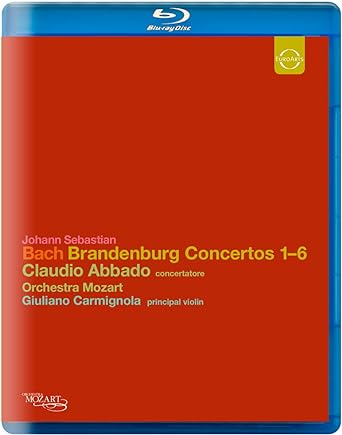You are using an out of date browser. It may not display this or other websites correctly.
You should upgrade or use an alternative browser.
You should upgrade or use an alternative browser.
The classical what are you listening to now ? thread.
- Thread starter TheDecameron
- Start date
Todd A
pfm Member
I'll be seeing Stephen Hough performing solo piano pieces tomorrow evening in Manchester. It'll be interesting to see if his live performance aligns with your comments on his recorded solo works.
Do report back. In my recital going experience, some pianists can sound quite different in person. Stephen Kovacevich, for instance, generated a lovely tone in person, quite different from his EMI recordings from around the same time. Of course, some sound the same. Ivan Moravec sounded exactly the same in person as on disc. (And that was wonderful!)
Todd A
pfm Member
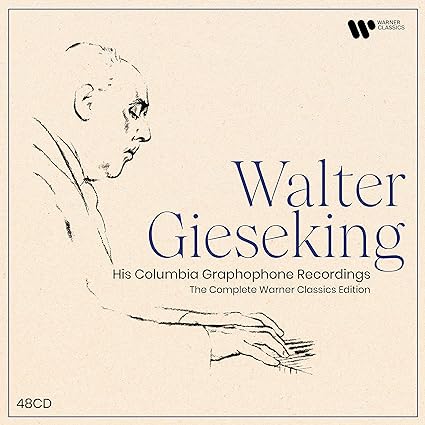
Digging into this set. There was only one place to start: CD 17, the 1951 recording of Debussy's Preludes. I have been waiting to hear this recording for over twenty years. Was it worth the wait? Kinda, kinda not. I'll start with the problem: the recording itself. There's overload and saturation aplenty, especially in Book I. Fortissimo loses its impact. It's obvious why the 1954 set is the oft reissued one. The playing is very fine, as one would expect. I've long preferred the 1930s recording to the 1954 recording, and in most ways, this is similar to the 1954 recording. Gieseking is much swifter, nimbler, and flexible in the earlier recording, and here he actually takes some pieces at a slow tempo. La cathédrale engloutie comes in at 7'11", for instance. Some of the pianissimo playing really sticks out, though, more than my memories of his later set. And at least once, due to playing and sound, the whole thing's almost a mess. Ce qu'a vu le vent d'ouest sounds chaotic, but Gieseking is one of the few pianists who can salvage chaos. Somewhat against expectation, Book II is relatively better than Book I on first listen. Giesking's Debussy is high quality stuff, but I long ago found that others are even more to my like - eg, Michel Beroff's Denon set. This is good enough that it may make restart my comps of the seventy-plus recordings of Book I that I have amassed.
Spraggons Den
pfm Member
So Romantique! by Cyrile Dubois
I heard a track on R3 this morning and tracked it down on Qobuz.
Even if opera is not your thing, I would still recommend it as it’s so unbelievably joyous and his singing is out of this world.
I heard a track on R3 this morning and tracked it down on Qobuz.
Even if opera is not your thing, I would still recommend it as it’s so unbelievably joyous and his singing is out of this world.
TheDecameron
Unicorns fart glitter.
I’ve been listening to Liszt a lot this past week. One of my favourites Les Preludes but also, the Faust Symohony, the Hungarian Rhapsodies and piano concerto No.1. Unsurprisingly, the best rendition of Les Preludes was…Solti. He manages the brass instruments really well and …ahem….he’s Hungarian.
Apropos of nothing, here’s a pic of Beethoven’s Broadwood that he acquired,
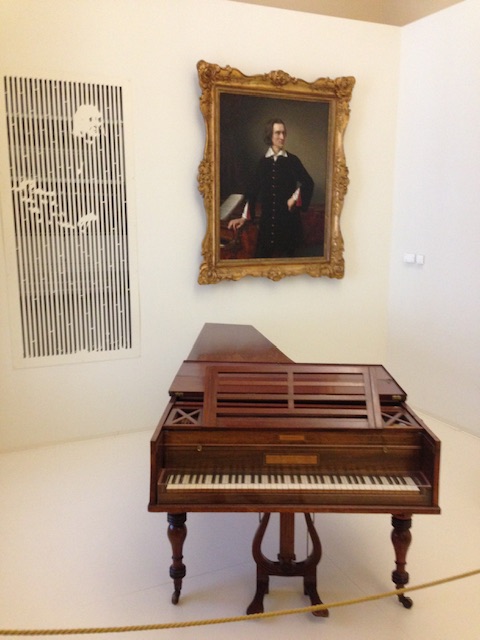
He said in old age that meeting Beethoven when he was eleven ( introduced by Beethoven’s pupil and his tutor, Carl Czerny -Beethoven couldn’t stand child musicians apparently ) was the proudest moment of his life.
Apropos of nothing, here’s a pic of Beethoven’s Broadwood that he acquired,

He said in old age that meeting Beethoven when he was eleven ( introduced by Beethoven’s pupil and his tutor, Carl Czerny -Beethoven couldn’t stand child musicians apparently ) was the proudest moment of his life.
GavinA
pfm Member
Last night I was listening to the Met Traviata on Radio 3. I thought it’s bit lacklustre and baled out after Act 2 and dug out my favourite Traviata, the 2005 Salzburg DVD with the young Anna Netrebko making her break into the big time. It is a modern setting (timeless really) but very intelligent with great singing and acting from the 3 principals. Netrebko is just astonishingly good, and her partners are also excellent, Rolando Villazon and Thomas Hampton (the latter a more sympathetic Germont than most).
It’s also beautifully filmed with great close ups and good sounds. Interestingly the price sticker was still on - 13 euros (about £10 at the time) from a Fnac summer promotion.
It’s also beautifully filmed with great close ups and good sounds. Interestingly the price sticker was still on - 13 euros (about £10 at the time) from a Fnac summer promotion.
MikeMA
pfm Member
This afternoon's charity shop find: Mozart The Four Concertos for Woodwinds and Orchestra played by the Philadelphia Orchestra, on CBS, volumes 1 & 2. They sound excellent after a good clean.
I paid £5 for the pair, the original price label says they cost 26/- each new in - I assume - the early 1960s, or £1.30 each in today's money. A bargain find for me I think.
I paid £5 for the pair, the original price label says they cost 26/- each new in - I assume - the early 1960s, or £1.30 each in today's money. A bargain find for me I think.
Last edited:
Todd A
pfm Member
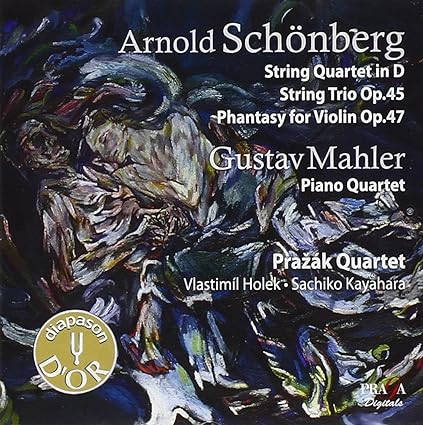
Oh, wow! This is an insanely good disc. I've heard other takes on the young Mahler's Piano Quartet, but this one just smooshes all others - and they've all been good. While this doesn't make me think the work is a masterpiece, the Prazak deliver super-heated playing that render the music so over the top that even Korngold might blush. (Or borrow some ideas.) The early Schoenberg String Quartet is scarcely less good. One hears big hints of Central European music, not least whiffs of Brahms and Dvorak in the mix. The late Schoenberg String Trio and Phantasy for Violin offer almost maximal stylistic contrasts, with the players all delivering gobsmackingly good playing. They make the music attractive. I hope this level of quality persists in Schoenberg, because that would mean they may overtake the extra-formidable Quatour Diotima as my first choice. The complete Prazak box is turning out to be even better than I anticipated only a few new to me discs in. I've long known their as good as the very best LvB, Dvorak, Smetana, and Janacek, and my suspicions about their overall greatness are being confirmed over and over.
Todd A
pfm Member
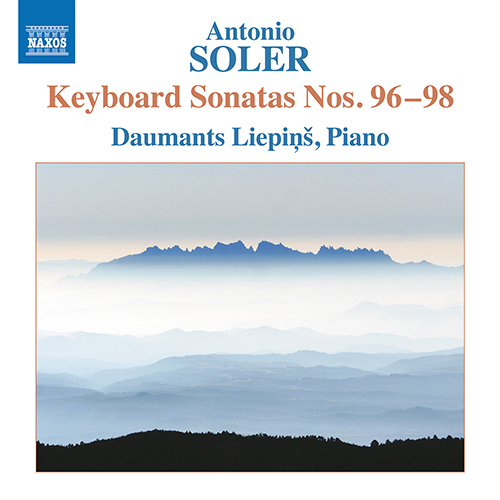
I finally picked up, or rather downloaded, the most recent Naxos Soler-on-piano release with Latvian pianist Daumants Liepiņš. His recording covers three larger, multi-movement late sonatas. In some ways, he’s dealt a bad hand in the series. First, there’s a lot of repetition to the sonatas, with minuets, more minuets, and then some more, and there’s an overall sameness to the works. The recording is also of the efficient rather than sumptuous variety, with a large piano plopped down in what sounds like a too small room. Those caveats noted, in terms of pianism, Liepiņš is up there with Čolić and Borowiak in this series. One need wait no longer than the repeated notes at the start of the recording to hear his evenness and control, and he displays nuanced touch everywhere, all the time. In the concluding Allegro of R97, he plays a crazy even accompaniment while the right hand splashes out melodies with variegated dynamics and accents with a sense of ease. The bouncy rhythm, which pervades the recording, is just nifty, and his crisp, even trills excite. Seriously, Op 111 is in his repertoire, and I must hear it. So, a not necessarily great Soler disc elevated by superb pianism by a young artist to watch. There are almost too many of them now. Almost. (Well, not really.)
alanbeeb
pfm Member
Mahler Symphony no 7 - Mariss Jansons and the BRSO. Excellent live recording. Although I am not always a big fan of Jansons, I really enjoyed this. I am also not a huge fan of Mahler's 7th, I have always felt that it adds up to less than the sum of its parts after the magnificent first movement, then quirky and strange middle movements, I usually find the last two movements very dull and a bit of a chore... but not this time as Jansons and the BRSO bring out the chamber-music like conversation of the 4th movement and then the variations of the finale, a bit like Wagner's Meistersingers overture on acid.
Rattle's Mahler 9 with the Vienna PO from 1993. Difficult to get the volume of the Austrian Radio recording right, but the performance is carrying me along in a symphony I have always found difficult to tune into. As did Ancerl's 1963 version with the Czech PO last night. I think I'm finally getting there...
Perhaps surprisingly, my favourite by far is Haitink with the LPO in 1972. Maybe not the obvious conductor for something which might be considered essentially brazen and splashy... but he makes it sound inevitable and meaningful - yet still exciting....Unsurprisingly, the best rendition of Les Preludes was…Solti...
Del monaco
Del Monaco
Canteloube. Songs of the Auvergne.
Beautiful songs.
Gens.
Beautiful songs.
Gens.
alanbeeb
pfm Member
Mark-Anthony Turnage string quartets 3 &4 - Shroud and Winter's Edge. Somewhere close to late Shostakovich or Britten, but warmer, if looking for a waypoint.
https://www.amazon.co.uk/dp/B0BW2RY6WL/?tag=pinkfishmedia-21
https://www.amazon.co.uk/dp/B0BW2RY6WL/?tag=pinkfishmedia-21
This site contains affiliate links for which pink fish media may be compensated.
Todd A
pfm Member
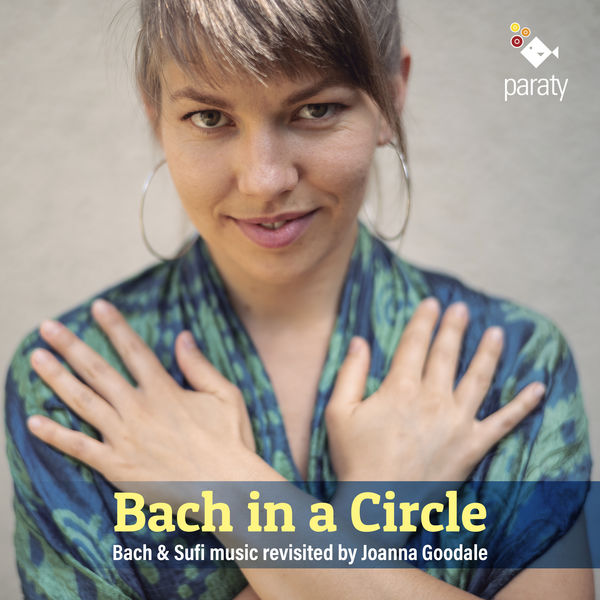
As in her fantastic Debussy in Resonance recording, Ms Goodale here mixes some of her own works and transcriptions of Sufi composers with works by Bach and famous transcriptions of Bach by Busoni, Siloti, and Kempff, as well as one transcription of Marcello by Bach. The results sound fantastic.
The artist's stated goal in her own works is to take Bach's themes and infuse them with Sufi rhythms. (She also goes into short technical detail about how it is impossible to do so using a piano given that Turkish makams have 1/9th tone intervals, so only approximations can be used.) Her playing in the straight Bach pieces focuses on rhythm above all, though she also coaxes nothing but gorgeous sounds from her instrument. In her pieces, she ventures much farther afield. Part of this comes from her occasional use of prepared piano, though not in the John Cage sense; the preparation means to evoke eastern sounds directly. At its most extreme, the opening to the Sufi Chaconne, electronically altered, creates a dreamy soundscape that transitions to the famous Chaconne, before fading out. She then switches to an almost absurdly beautiful BWV974 as the follow up. Think of it as Bach infused with the spirit of Debussy, Mompou, and minimalism. A few pieces later, Goodale’s After Bismillah blends beautiful middle and upper register playing with mysterious accompaniment in a beguiling way. The recording ends with Goodale’s transcription of Shahram Nazeri’s Man Che Danam, where Goodale boogies, adds in some more prepared piano playing and percussion in a one woman mini-band. It’s a perfect closer.
Ms Goodale has essentially joined the ranks of Isabel Bayrakdarian, Marie-Luise Hinrichs, and David Greilsammer for me. All of them are artists who pursue their own things, their own visions, and bring moving insight and often unyielding beauty to the mix. I will follow Ms Goodale with some interest.
John Phillips
pfm Member
Browsing Qobuz recent classical music releases I found something I didn't expect: Danny Elfman's Violin Concerto "Eleven Eleven".
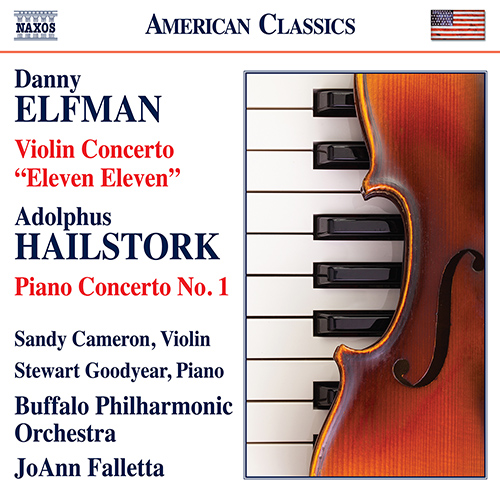
I couldn't resist streaming it and I really enjoyed it.
I rate Elfman's film music highly but this is not just more of the same. There's a lot of Elfman in there for sure but with significant other 20th century influences.
The Adolphus Hailstork Piano Concerto No. 1 didn't immediately grab me in the same way as the Elfman but I warmed to it as it played. I will listen again soon to see if I get it.

I couldn't resist streaming it and I really enjoyed it.
I rate Elfman's film music highly but this is not just more of the same. There's a lot of Elfman in there for sure but with significant other 20th century influences.
The Adolphus Hailstork Piano Concerto No. 1 didn't immediately grab me in the same way as the Elfman but I warmed to it as it played. I will listen again soon to see if I get it.
This site contains affiliate links for which pink fish media may be compensated.
TheDecameron
Unicorns fart glitter.
Just watched the 2004 Lucerne Festival performance of Strauss’s Four Last Songs with Abaddo and Renee Fleming again. Not only technically perfect but a very spiritual reading of them. I’d never noticed before but when the camera went to the audience for the applause I spotted Bernard Haitink and Maurizio Polini.



